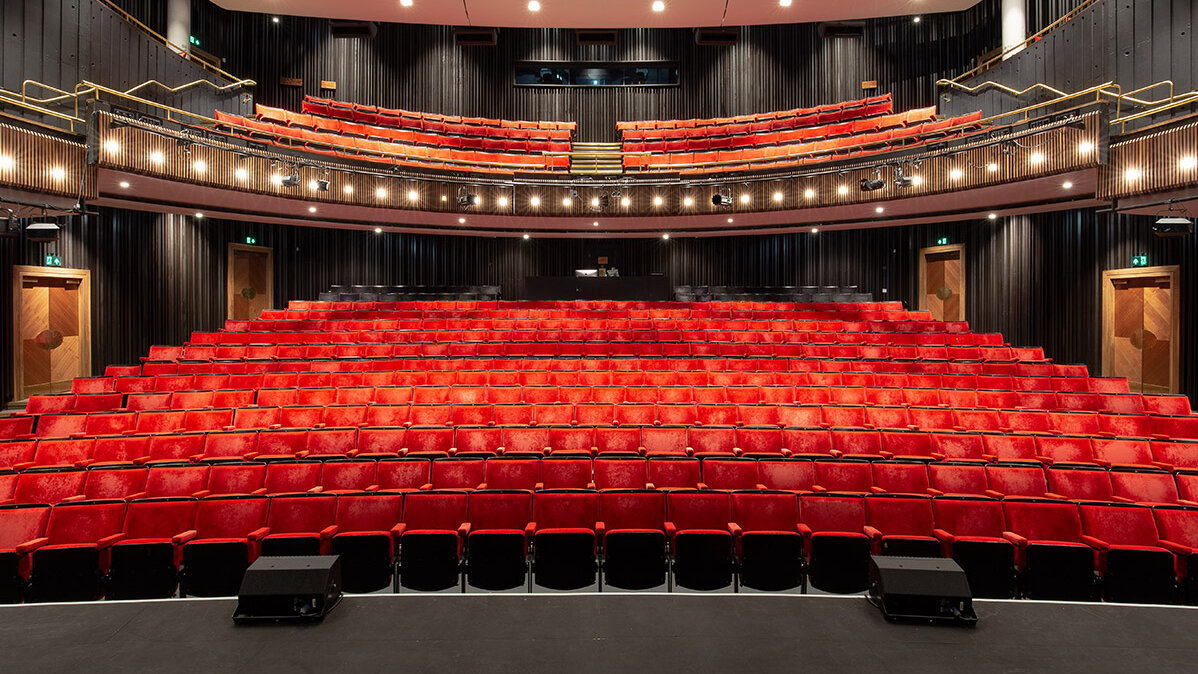UCL Hosts Euripides Bacchae at the Bloomsbury Theatre, London

Bacchae, by Greek playwright Euripides is a classic tragedy. James and a group of other classics enthusiasts from the Fourths recently went to an undergraduate performance and The Bloomsbury Theatre in London.
On the evening of Wednesday 7th February, a small group of 4th Form boys (myself included) travelled from School to London for an undergraduate performance of the Bacchae, by Greek playwright Euripides, at the Bloomsbury Theatre, University College London (UCL). We all met at the Lecture Theatre for an initial briefing by Ms Cebon, who organised and led the visit, before departing via Moor Park tube station for London.
A pre-performance supper was organised at a restaurant close to UCL, so we arrived at Euston Square and made our way through the busy London streets to Honest Burgers, where we had an area reserved for our small party and were soon tucking in to a feast of hearty burgers, chips and drinks. We enjoyed the food and company for about an hour before Ms Cebon said it was time to head on to UCL for the performance. We wound our way in conversation down the few streets between the restaurant and the Bloomsbury Theatre, UCL. The Bloomsbury Theatre is moderately-sized, and we were traipsed into the stalls, where we had secured seats at the back of a theatre. Soon the lights went down and the performance began.
The play opens in the Palace of Thebes, with Dionysus lamenting the lies of his aunts and others, saying that he is not the son of Zeus. Dionysus was there to establish his worship and punish those who deny his divinity, particularly his cousin, King Pentheus, who had Dionysus captured and brought to him.
Dionysus, unknown to Pentheus, had the women of Thebes in a frenzied state of worship towards him. Pentheus, however, was sceptical of Dionysus and therefore resistant to his power. Dionysus uses his skill of cunning to trick Pentheus into spying on the Bacchae, who were the frenzied women of Thebes worshipping Dionysus. This does not end well for Pentheus because the Bacchae are effectively controlled by Dionysus himself. Pentheus is torn apart by the frenzied Bacchae, led by his own mother, Agave, in a grotesque misunderstanding fuelled by divine influence. The play ends in Agave's horrific realisation of her actions, the destruction of Pentheus' family, and the affirmation of Dionysus' divine power and vengeance.
This play teaches us about the importance of conflicts of superiority, and what the ancient Greeks believed was important to represent in their culture. It had been a long, interesting and enjoyable day. Thank you to the hardworking Classics Department for organising another excellent theatre trip!